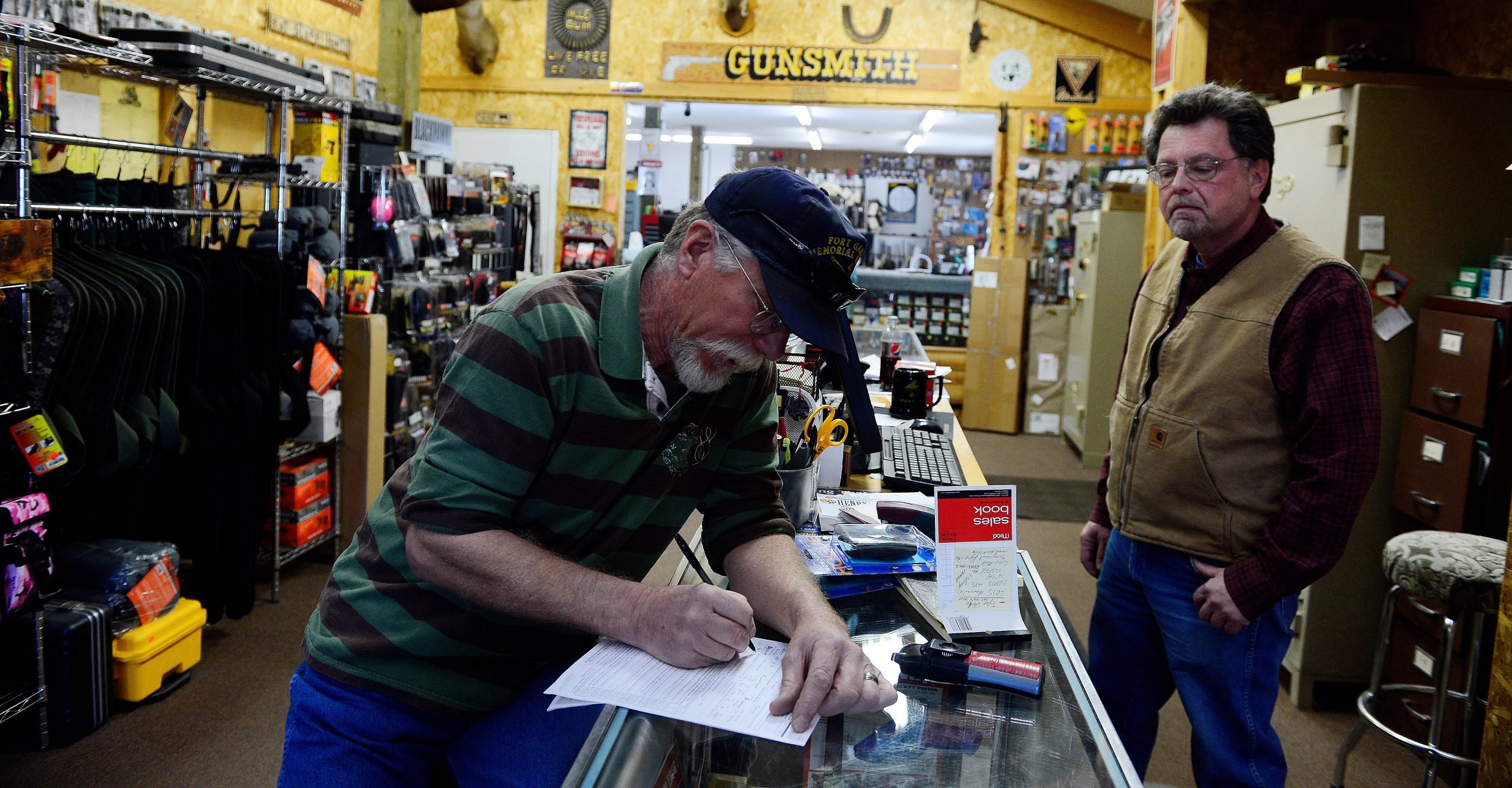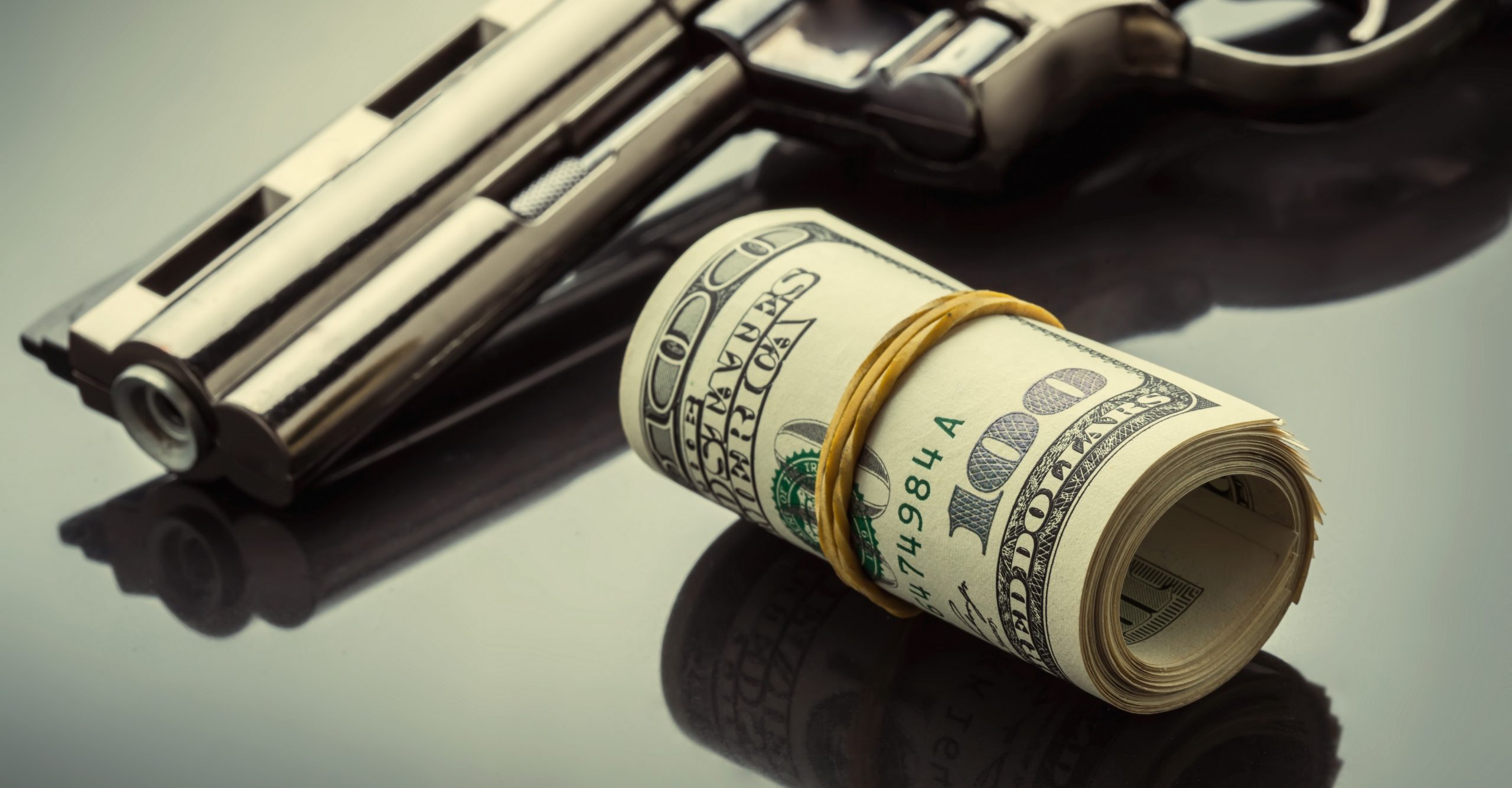When officials from the Bureau of Alcohol, Tobacco, Firearms and Explosives (ATF) sit down with some of the nation’s biggest gun show organizers on January 20, they’re likely in for a cool reception.
The meeting, scheduled for the second day of the massive Shot Show gun expo in Las Vegas, Nevada, comes two weeks after President Barack Obama rolled out slate of executive actions aimed at tightening the nation’s gun laws. Among the most prominent changes — and a sure topic of conversation — is the president’s bid to require sellers to obtain a federal firearms license (FFL) and perform background checks on purchasers if they are “engaged in the business” of gun dealing.
It’s on the floors of the nation’s gun shows that Obama’s executive orders face their most public test. The ATF has over the past decade taken a passive approach to policing these events, limiting its role to offering guidance to vendors. If unregulated private sellers continue to operate out in the open at guns shows while demonstrating the traits now spelled out as the requirements for registration as an FFL — such as printing business cards, maintaining a website, or frequently selling guns still in original packaging — and do so without repercussions, then Obama’s push could be exposed as purely symbolic.
At the Shot Show meeting, the attendees are supposed to discuss ways to make it easier to get an FFL. But there’s also the issue of what will happen to private sellers clearly engaged in the business who refuse to register as dealers. One hope heard in gun violence prevention circles is that organizers could be a point of leverage if they feel compelled to accept only vendors who comply with the new guidance. But the leader of a trade group representing gun shows seems unmoved.
“The president has changed nothing,” Steve Elliott, who sits on the board of the National Association of Arms Shows (NAAS) and organizes gun shows in five states, tells The Trace. Elliott says the new guidance document issued by the ATF over who should register as a licensed seller would not affect how he runs his shows.
“When the second page of a publication says the guidance contained herein has no legislative effect, I stop reading,” he said. “I don’t have time for fairy tales.”
The meeting between ATF brass and the leaders of the NAAS is a regular feature of the massive annual exhibition, Elliott says, describing it as a “‘sit down at a table and discuss stuff’ meeting” that typically lasts for about 90 minutes. In past years the bureau has been represented by its director (a position currently unfilled) and assistant director. An ATF spokesperson confirmed that the agency regularly meets with dealers at the Shot Show. Elliott could not provide figures of NAAS’s current membership, which are not posted on its website. The president of the trade group did not return calls seeking comment.
“Basically, what we want is to hear their ideas,” Elliott says. “If Obama wants all these folks to go get licenses, how are they going to get them?”
While obtaining a federal firearms license involves some paperwork and several vetting steps, including submitting to a background check and fingerprinting, it’s not a difficult process. According to the ATF, there are upwards of 135,000 FFLs operating in the U.S. right now.
President Obama’s executive action is designed to target private sellers who routinely deal guns without performing background checks on customers or registering with authorities — providing an easy pathway for criminals to get firearms they shouldn’t have. In 2012, then-New York City Police Commissioner Raymond Kelly estimated that as many as 6 million guns were sold in the U.S. the year prior without a background check.
Enforcement of the president’s tightened “gun show loophole” will fall to the ATF, an agency that’s been hobbled by chronic underfunding and the same political environment that’s stalled gun control legislation since the 1990s.
The bureau has long been a punching bag for the powerful National Rifle Association and pro-gun lawmakers. Along with operating without a permanent, Senate-confirmed director for most of Obama’s presidency, the ATF receives a fraction of the funding that either the Drug Enforcement Agency or the FBI receives. (As part of his plan, Obama also asked Congress to provide funding for an additional 200 ATF agents). It enforces laws that gun-control proponents slam as vaguely written, and rarely prosecuted at the federal level. And its very nature — enforcing gun laws — puts it at the center of contentious political debates.
Those issues have been compounded by scandal. In 2006, several attendees at Richmond, Virginia gun shows complained that the ATF and local police were using overly aggressive tactics and engaging in racial profiling to identify potential straw buyers. The end result was a bureau that had little ability or appetite to regularly police activities at gun shows, a two-year long study by the left-leaning Center for American Progress (CAP) found.
When the second page of a publication says the guidance contained herein has no legislative effect, I stop reading, I don’t have time for fairy tales.”
“While ATF does have a presence at gun shows … the agency’s role at gun shows is primarily that of an information booth rather than any type of civil or criminal enforcement mechanism to ensure that applicable laws and regulations are being followed,” CAP reported. The report’s author believes the ATF’s role in pushing this new policy will be largely educational.
“What the ATF will be doing going forward is making sure this guidance is being promulgated,” says Chelsea Parsons, the vice president of guns and crime policy at CAP, who adds that the agency’s continued, but largely booth-limited, presence at these shows would be helpful. “I’m not overly concerned the ATF won’t be able to enforce these guidelines.”
John Risenhoover is a former ATF special agent who retired from the bureau last year after a 26-year career. “The vast majority of the time when we would notify people through writing they need to get a license, they would get a license or stop doing what they were doing,” he says. Risenhoover, who now helps cities develop strategies to combat gun crime, doesn’t see the ATF changing its gun show strategy in the wake of Obama’s executive actions. For him, the focus on education makes far more sense — both as policy and politics — than attempting to do enforcement at sellers’ tables.
“It’s a waste of ATF’s limited resources on an unenforceable law that will only serve to inflame the far-right, as opposed to focusing on criminal shooters plaguing our inner-cities,” Risenhoover says. “You’re looking at people, who, at the most, might have crossed some invisible line that no one can define.”
The gun show booths from which the ATF will do its outreach are the product of discussions that took place at the Shot Show meetings, Elliott claims.
“They don’t do enforcement action at the shows,” he says. “They observe.”
When asked if he’d be in favor of expanding the enforcement presence of the ATF, he answered: “It depends on if their enforcement activity borders on harassment or not.” He added: “If they’re there to harass people, I have a huge problem with that.”
Correction: An earlier version of this article misidentified Steve Elliott. His last name is Elliott, not Cohen.
[Photo: George Frey/Bloomberg News/Getty]



